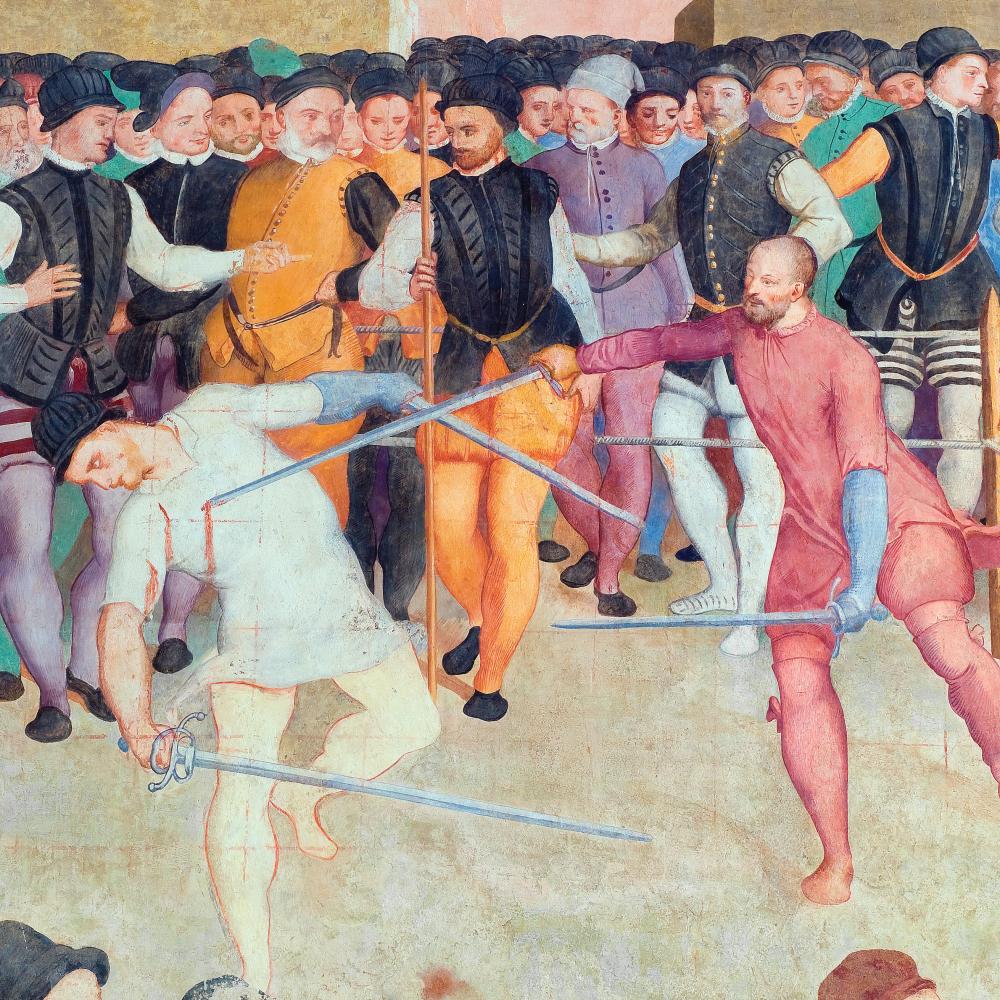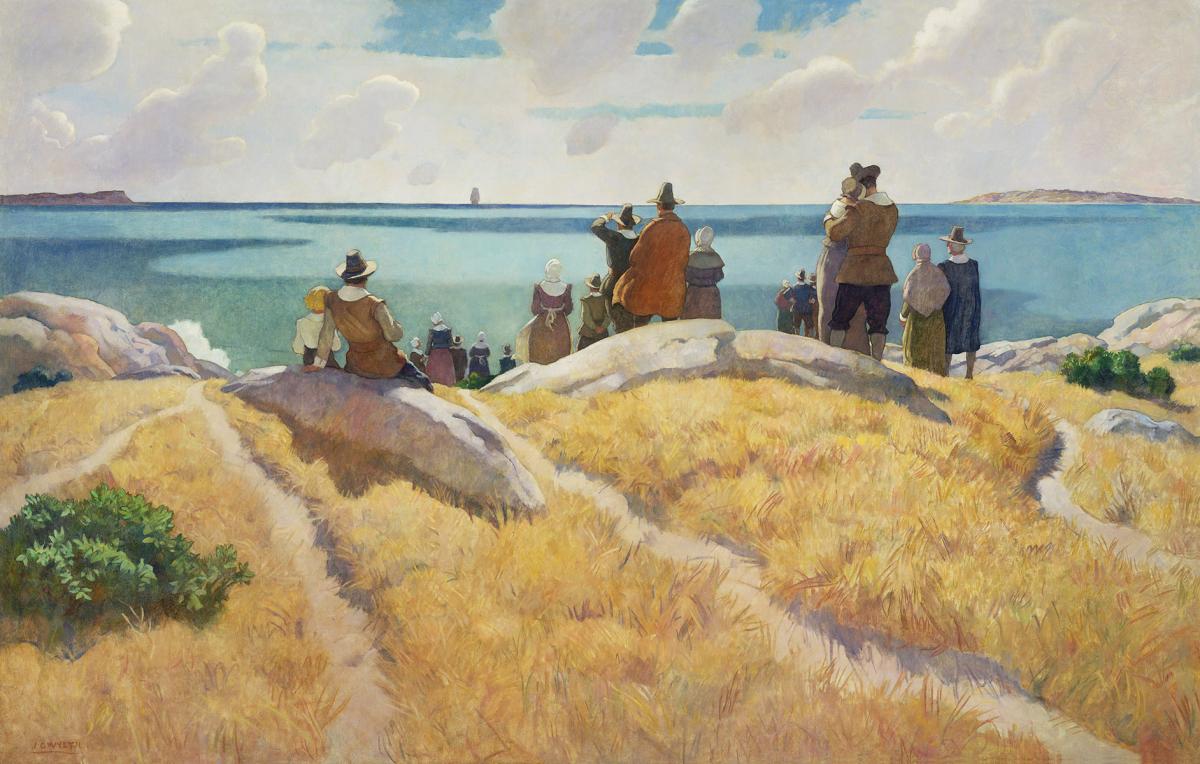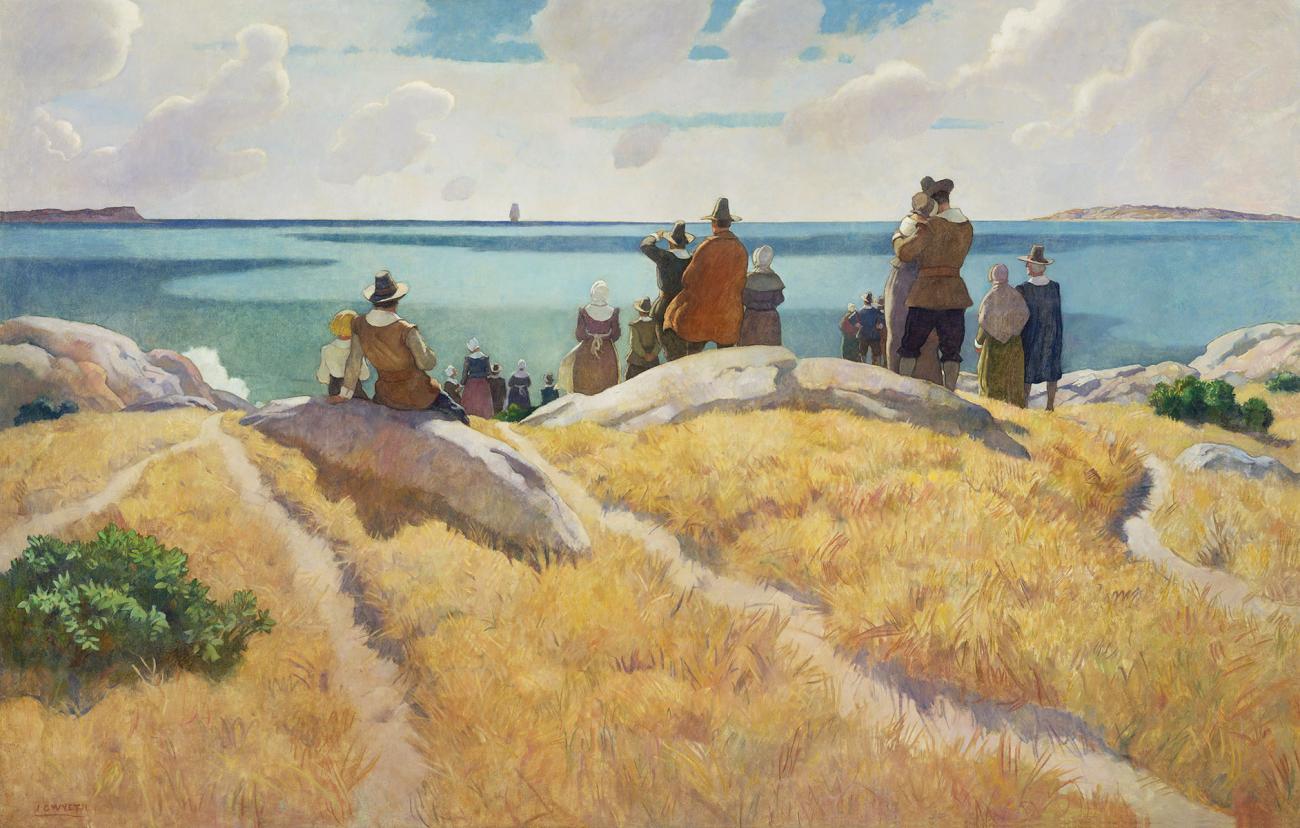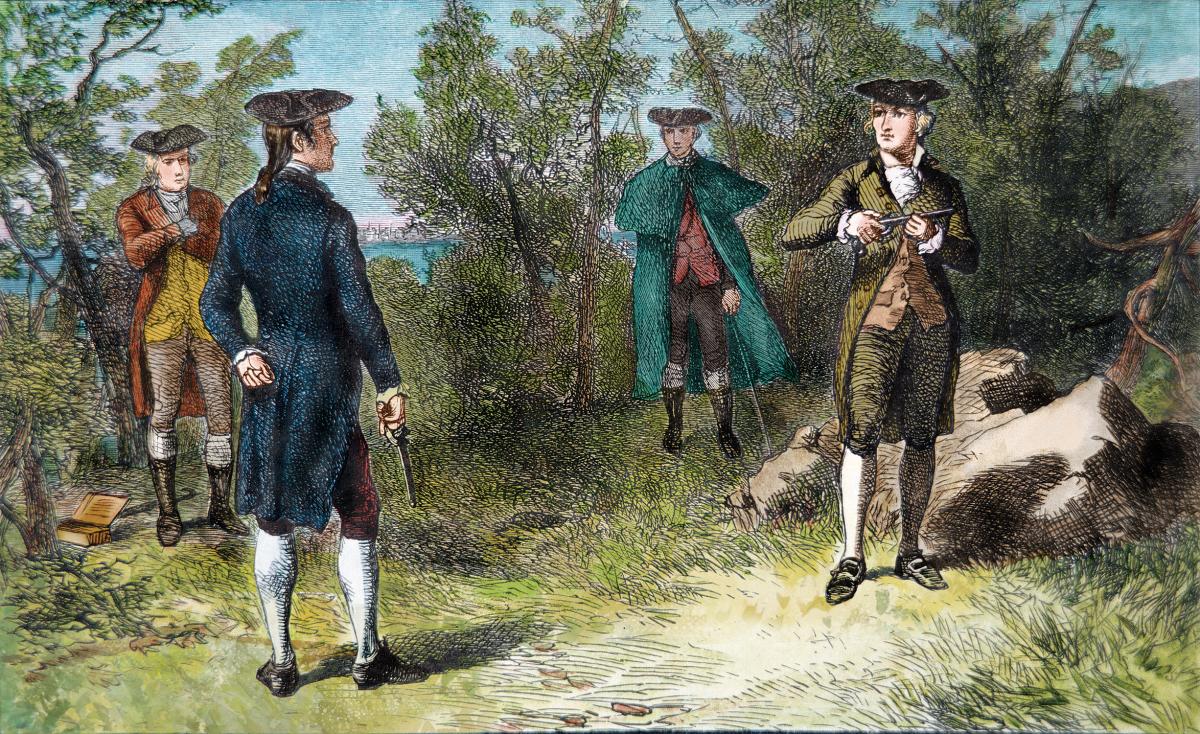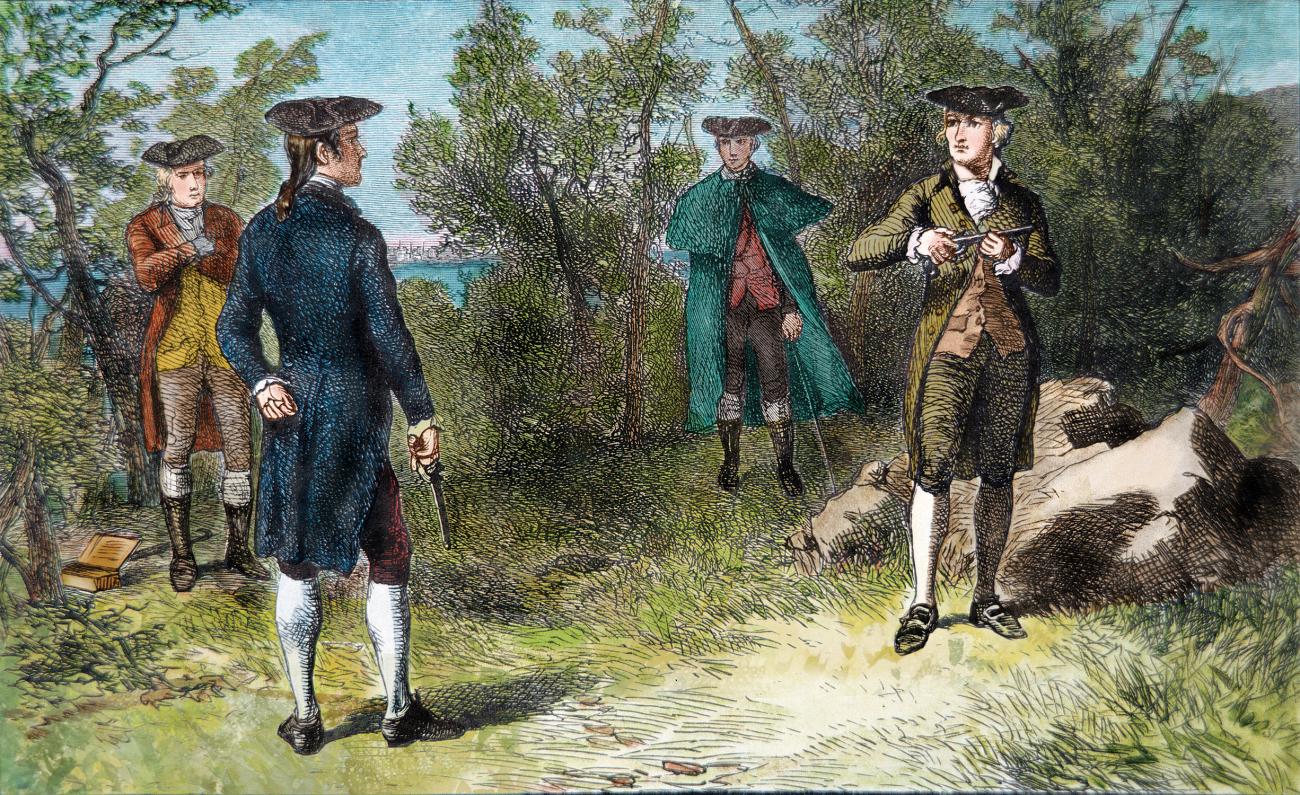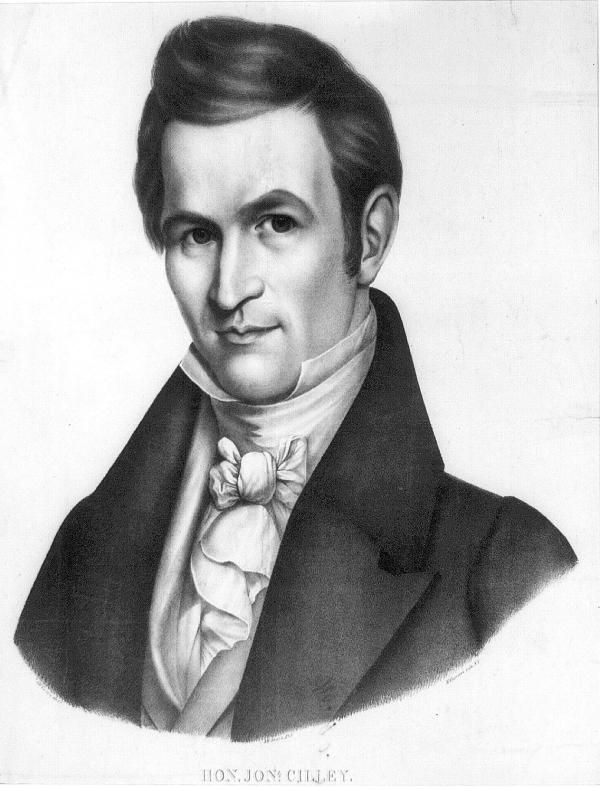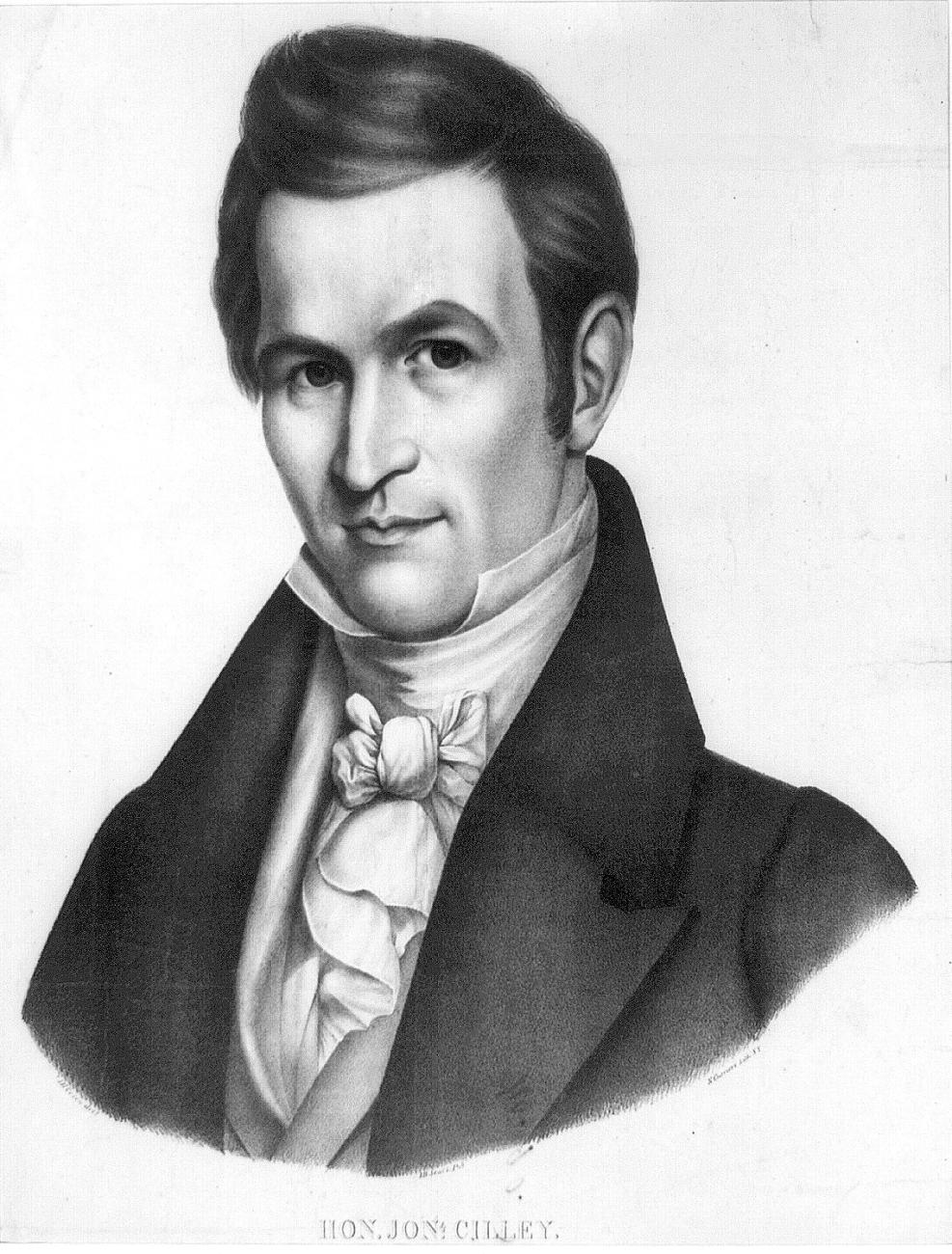No new intellectual or moral structure can ever be constructed on a ground zero, so the Mayflower, carrying the colonists across the Atlantic, was well stocked not only with specimens of flora, fauna, and livestock but also with copies of the Bible, works of literature and philosophy, as well as that intangible construct that we now call culture. The plants took root and the cattle adapted to the New World, sometimes embellishing the unfamiliar environment, at other times damaging it. The same could be said of the imported culture, which included the well-established norms of the code of honor and the duel. The Pilgrims signed the Mayflower Compact, which required them to observe the highest of Christian standards, so it is startling to discover that the first recorded duel fought in the New World occurred in that Massachusetts colony in 1621, just one year after the Pilgrim Fathers disembarked. It involved two men, Edward Doty and Edward Leister, who were signatories and servants in the employ of one Stephen Hopkins, who appears to have been an innkeeper.
Both duelists survived and were sentenced to be chained together and left without food or drink for 24 hours, although the governor took pity on them. The practice of dueling had made a successful transition to America, where it would flourish as it had in Europe, while acquiring some characteristics of its own.
Renaissance Italy was the land where the code of honor and, consequently, dueling first emerged, so it was no accident that for centuries the code took an Italian name, code duello. Scholars have estimated that during this period in Italy around a hundred treatises were written on the subject of honor, the idea of which became a cornerstone of polite conduct for hundreds of years, approximately from the sixteenth until the late nineteenth century.
For all the ink Italians devoted to it, honor itself remained an elusive concept, associated with dignity in the public sphere and self-esteem in the private realm. For men, it was related to, but not entirely synonymous with, glory, respect, prestige, and honesty—qualities related to the redefined ideals of courtesy and civility. For women, its essence lay in celibacy before, and fidelity after, marriage. It was the task of men to defend or avenge women’s honor, not least because their own honor was entrusted to that of “their” ladies, sisters, or wives as might be the case.
Forgotten gentlemen weren’t the only ones who felt compelled to defend their honor. The duel has been under-reported in works of history, so it is interesting to discover that a list of duelists reads like a “who’s who” from countries on both sides of the Atlantic. Prime ministers, presidents, ministers, lawyers, accountants, generals, colonels, landowners, clergymen, roués, gamblers, counts, dukes, writers, artists, and even some sovereigns made their appearance at dawn on the field of honor to “blaze away,” in the Irish expression.
Faced with what they saw as unruly anarchy in the calling and conduct of duels, a group of Anglo-Irish gentlemen met in Clonmel, Ireland, in 1777 and produced the 27 precepts known thereafter as the Clonmel Code, which laid out the finer points of dueling etiquette. The code distinguished, for example, between offences that could be erased by an apology and those, such as an insult to a lady, which were so gross that only a duel would do. It also laid down, in detail, the conduct required on the actual day. It was proposed that gentlemen should “keep a copy always in their pistol-cases.”
The word “gentlemen” is an important one; when it came to the duel, the questions of honor and class were complex. In Edinburgh in 1822, James Stuart of Dunearn, a Whig, was satirized in a Tory journal, The Beacon, and being initially unable to find the identity of the anonymous versifier, he administered in broad daylight in High Street in Edinburgh a severe whipping on the unfortunate editor of the offending broadsheet. An editor was not a gentleman, and so could not be “called out.” No police or judicial action followed, but the relief in the upper echelons of the city was palpable when the author was revealed to be Sir Alexander Boswell, son of the famous biographer, landowner, and ex-MP. Since he was unquestionably a gentleman, the established code could be followed. Stuart issued a challenge to a duel, Boswell accepted, and the two crossed the river Forth to the town of Kirkcaldy, where they met at dawn. Boswell received a fatal wound and was buried with great ceremony alongside his father in the family vaults in Auchinleck. Stuart fled abroad but returned to stand trial, where he was acquitted by a jury of his peers who obviously shared his values and viewed his activities not as criminal but as the due enactment of a gentleman’s duties.
The United States regarded itself from its inception as a classless society, unlike the effete societies of Europe, but there were exceptions when it came to the duel. Rank was a problem in a notorious duel in 1838, where the two protagonists were both congressmen. (Joanne B. Freeman in Affairs of Honor: National Politics in the New Republic identified 70 encounters involving one or two serving congressmen). Jonathan Cilley of Maine launched an attack in the House of Representatives on Colonel James Watson Webb, editor of the Whig Morning Courier and New York Enquirer, alleging that the newspaper took a soft editorial line on corruption. The dishonored Webb reacted in the expected way with a challenge, which Cilley refused to accept since a mere editor was beneath a gentleman’s notice. Webb then prevailed on Congressman William Jordan Graves of Kentucky to act as his second and deliver the challenge on his behalf, but Cilley again declined. The affair took a new twist when Graves decided that he himself had been offended by Cilley’s manner and issued a challenge on his own behalf. Cilley was obliged to accept. Rifles, another American innovation, were the chosen weapons, and Cilley was shot dead, leaving a wife and three children. Graves was punished by a motion of censure in the House.
One intriguing aspect—for those of us safely ensconced in the twenty-first century at least—was the obligation that Cilley felt himself under to participate in the social ritual that would put his life at stake. This obligation was a factor in the most famous of all American duels, the Burr-Hamilton encounter, or “interview,” as the contemporary euphemism had it. Every aspect of this “interview” has been discussed, or set to music, but it is worth pondering the enigma of the words that Hamilton—an opponent of dueling despite his checkered past in this regard—wrote on his deathbed. “I have found for some time that my life must be exposed to that man.” Why must it? we ask. What is the power of that force we now call culture, specifically of the cult or code of honor? How does a conviction become a commandment, and one that requires putting life itself at risk?
Not everyone shared Hamilton’s reservations about the code duello. In 1838, the same year Cilley met his untimely but honorable end, John Lyde Wilson produced an American rival to the protocol laid out in the Clonmel Code. (Though the Clonmel Code was referred to everywhere in the western world, Wilson implausibly claimed to know nothing of it.) His work was given the title The Code of Honor, or Rules for the Government of Principals and Seconds in Duelling. It is composed of eight chapters of practical counsel to individual duelists, outlining every step to be taken, up to the point where the pistol is loaded.
Wilson deserves to be better known as a “representative man,” in Emerson’s sense. He held a succession of public offices, including that of governor of South Carolina. He was pro-slavery, sympathetic to secession, an active member of a lynching club, and a devout Christian. His prose is vigorous and sturdy, the ideal vehicle for his unequivocating thought. In his introductory passage “To The Public,” he claims that his aim is to reduce but not eliminate duels, which would be impossible, since in his view all nature is built on conflict, on the rule of the stronger party, on principles that Machiavelli or Hobbes would have recognized. However, if even Hobbes stopped at declaring that in the human realm homo homini lupus (man is a wolf to man), Wilson goes beyond that to establish wolf-like behavior as the fundamental law of nature, human, animal, vegetable, and even celestial. “The sweetest rose tree will sicken and waste on the near approach of the noxious bramble, and the most promising fields of wheat yield a miserable harvest if choked up with tares and thistles,” he writes. “The elements themselves war together, and the angels of heaven have met in fierce encounter.” His vision of the appropriate human response when one’s honor is threatened is that of the bramble not the rose, that of Saint Michael the Archangel with his fiery sword, not of some benevolent heavenly messenger.
The problem that nagged at every duelist or defender of dueling was Christian teaching, specifically the commandment “thou shalt not kill.” Wilson got around this problem by establishing a parallel secular code alongside the teachings of the Bible. He wrote:
If a man be smote on one cheek in public, and he turns the other, which is also smitten, and he offers no resistance, but blesses him that so despitefully used him, I am aware that he is in the exercise of great Christian forbearance, highly recommended and enjoined by many very good men, but utterly repugnant to those feelings which nature and education have implanted in the human character. If it was possible to enact laws so severe and impossible to be evaded, as to enforce such rule of behavior, all that is honorable in the community would quit the country and inhabit the wilderness with the Indians.
The reference to the Indians seems like an odd aside, but presumably Wilson takes them as representative of lesser breeds without the law, lacking the refined sense of gentlemanly belief. The code of honor as he conceives it vies with the gospels and offers the only acceptable rule of life for a person who aspires to be a gentleman.
In the final chapter he remembers that his declared intention had been to instruct men on how to avoid duels, so there are a few jarring words to that end, but if he had genuinely hoped to see a reduction in dueling, particularly in cases where the provocation was minimal, he was deluded. There were duels over the succeeding 50 years until a meeting in 1883, conventionally regarded as the final duel in North America. Journalism was plainly a risky business, and the principals were two editors, Richard F. Beirne of the Richmond State and William C. Elam of the Whig. No life was lost and the blood that was shed came from Elam’s buttocks, for he was bending over when his rival fired. The indignity was too much. The code duello could survive the preaching of clergymen, but not derision.

